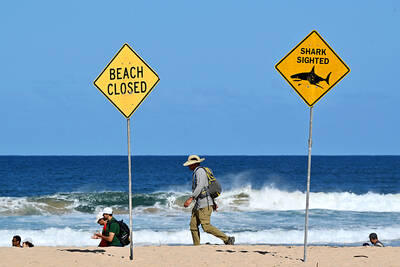European rules being drawn up in secret will make it compulsory for children, possibly as young as six, to have their fingerprints stored on a database which could be shared with countries around the world.
The prospect alarms civil liberties groups who fear it represents a "sea change" in the state's relationship with children and one that may lead to juveniles being erroneously accused of crimes. Under laws being drawn up behind closed doors by the European Commission's "Article Six" committee, which is composed of representatives of the EU's 25 member states, all children will have to attend a fingerprinting center to obtain an EU passport by June 2009 at the latest.
The use of fingerprints and other biometric data is designed to prevent passport fraud and allow European member states to meet US entry visa requirements, but the decision to fingerprint children has disturbed human rights groups.
The British-based civil liberties pressure group Statewatch last night accused EU governments of taking decisions in which "people and parliaments have no say." It said the committee's decisions were simply based on "technological possibilities -- not on the moral and political questions of whether it is right or desirable."
"This is a sea change," said Ben Hayes, spokesman for Statewatch.
"We are going from fingerprinting criminals to universal fingerprinting without any real debate. In the long term everyone's fingerprints will be stored on a central database. You have to ask what will be the costs to a person's privacy," he said.
According to secret documents obtained by Statewatch, the committee will make it compulsory for all children from the age of 12 to be fingerprinted. However, several of the committee's member states are lobbying to bring the compulsory age limit down. Sweden tells the committee it "could agree with a minimum age of six years for passports."
The UK, meanwhile, observes that it has collected the fingerprints of five-year-old asylum seekers with no "significant problems." Since February the UK Home Office has been fingerprinting children as young as five at asylum centers in London and Liverpool. It took the decision amid concerns children were being registered by several families in order to claim more benefits.
British refugee support groups, including the Joint Council for the Welfare of Immigrants, (JCWI) have described the action as "intrusive." The JCWI also expressed concerns that fingerprints kept on file could be held against children if they tried to return to the UK in later life.
Fingerprinting young children is considered difficult because their fingers have yet to fully develop. The European Commission notes: "Scientific tests have confirmed that the paillary ridges on the fingers are not sufficiently developed to allow biometric capture and analysis until the age of six."

With much pomp and circumstance, Cairo is today to inaugurate the long-awaited Grand Egyptian Museum (GEM), widely presented as the crowning jewel on authorities’ efforts to overhaul the country’s vital tourism industry. With a panoramic view of the Giza pyramids plateau, the museum houses thousands of artifacts spanning more than 5,000 years of Egyptian antiquity at a whopping cost of more than US$1 billion. More than two decades in the making, the ultra-modern museum anticipates 5 million visitors annually, with never-before-seen relics on display. In the run-up to the grand opening, Egyptian media and official statements have hailed the “historic moment,” describing the

SECRETIVE SECT: Tetsuya Yamagami was said to have held a grudge against the Unification Church for bankrupting his family after his mother donated about ¥100m The gunman accused of killing former Japanese prime minister Shinzo Abe yesterday pleaded guilty, three years after the assassination in broad daylight shocked the world. The slaying forced a reckoning in a nation with little experience of gun violence, and ignited scrutiny of alleged ties between prominent conservative lawmakers and a secretive sect, the Unification Church. “Everything is true,” Tetsuya Yamagami said at a court in the western city of Nara, admitting to murdering the nation’s longest-serving leader in July 2022. The 45-year-old was led into the room by four security officials. When the judge asked him to state his name, Yamagami, who

DEADLY PREDATORS: In New South Wales, smart drumlines — anchored buoys with baited hooks — send an alert when a shark bites, allowing the sharks to be tagged High above Sydney’s beaches, drones seek one of the world’s deadliest predators, scanning for the flick of a tail, the swish of a fin or a shadow slipping through the swell. Australia’s oceans are teeming with sharks, with great whites topping the list of species that might fatally chomp a human. Undeterred, Australians flock to the sea in huge numbers — with a survey last year showing that nearly two-thirds of the population made a total of 650 million coastal visits in a single year. Many beach lovers accept the risks. When a shark killed surfer Mercury Psillakis off a northern Sydney beach last

‘CHILD PORNOGRAPHY’: The doll on Shein’s Web site measure about 80cm in height, and it was holding a teddy bear in a photo published by a daily newspaper France’s anti-fraud unit on Saturday said it had reported Asian e-commerce giant Shein (希音) for selling what it described as “sex dolls with a childlike appearance.” The French Directorate General for Competition, Consumer Affairs and Fraud Control (DGCCRF) said in a statement that the “description and categorization” of the items on Shein’s Web site “make it difficult to doubt the child pornography nature of the content.” Shortly after the statement, Shein announced that the dolls in question had been withdrawn from its platform and that it had launched an internal inquiry. On its Web site, Le Parisien daily published a